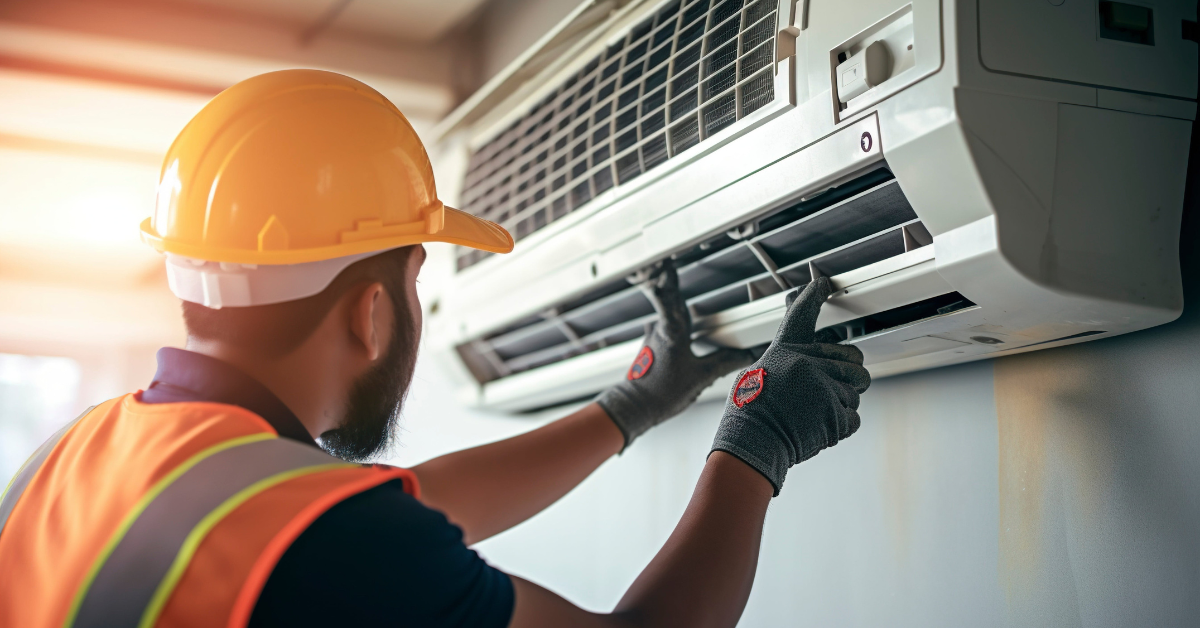
Is It Time for an Air Conditioning Replacement?
When summer heat hits, a reliable air conditioner is essential. But how do you know when it's time for an air conditioning replacement? It's more than just a matter of age. Several signs indicate that your AC unit might be nearing the end of its lifespan.
- Age of the Unit: Most air conditioners last between 10 to 15 years. If yours is older, it's likely less efficient and more prone to breakdowns.
- Frequent Repairs: If you're constantly calling for repairs, it might be more cost-effective to replace the unit.
- Rising Energy Bills: An aging AC unit works harder to cool your home, leading to higher energy consumption and increased bills.
- Inconsistent Cooling: If some rooms are cooler than others, or if the unit struggles to maintain the set temperature, it's a sign of inefficiency.
- Strange Noises or Odors: Unusual sounds or smells coming from your AC unit can indicate serious mechanical issues.
The Benefits of a New Air Conditioning System
Investing in a new air conditioning replacement offers numerous benefits beyond just keeping your home cool.

- Improved Energy Efficiency: Modern AC units are designed to be more energy-efficient, which can significantly reduce your energy bills.
- Enhanced Comfort: New systems provide more consistent cooling, ensuring every room in your home is comfortable.
- Quieter Operation: Newer models are engineered to operate more quietly, minimizing disruptions.
- Better Air Quality: Many modern AC units come with advanced filtration systems that improve indoor air quality.
- Increased Home Value: A new, efficient AC system can increase the value of your home.
Choosing the Right Air Conditioning Replacement
Selecting the right air conditioning replacement involves considering several factors.
- Size and Capacity: The size of your home determines the capacity of the AC unit you need. A unit that's too small won't cool effectively, while a unit that's too large will cycle on and off frequently, wasting energy.
- SEER Rating: The Seasonal Energy Efficiency Ratio (SEER) rating indicates the unit's energy efficiency. Higher SEER ratings mean greater efficiency.
- Type of System: Consider the type of system that best suits your needs, such as a central AC, ductless mini-split, or heat pump.
- Professional Installation: Proper installation is crucial for optimal performance. Hire a qualified HVAC technician to ensure your new AC unit is installed correctly.
- Budget: Set a budget and explore different options within your price range. Don't just focus on the upfront cost; consider long-term energy savings.

The Air Conditioning Replacement Process
Understanding the air conditioning replacement process can help you prepare for the installation.
- Assessment: An HVAC technician will assess your home's cooling needs and recommend the appropriate system.
- Removal of the Old Unit: The old AC unit will be safely removed and disposed of.
- Installation of the New Unit: The new AC unit will be installed, including connecting the refrigerant lines, electrical wiring, and ductwork.
- Testing and Calibration: The system will be tested to ensure it's functioning correctly, and any necessary adjustments will be made.
- Final Inspection and Explanation: The technician will conduct a final inspection and explain how to operate and maintain your new AC unit.
Maintenance Tips for Your New AC Unit

To prolong the lifespan of your air conditioning replacement and ensure optimal performance, follow these maintenance tips.
- Regularly Change Air Filters: Clean or replace air filters every 1-3 months.
- Schedule Annual Tune-ups: Have your AC unit inspected and serviced by a professional HVAC technician annually.
- Clean Outdoor Condenser Unit: Remove debris and ensure proper airflow around the outdoor unit.
- Check for Leaks: Inspect refrigerant lines and connections for leaks.
- Keep Vents Clear: Ensure vents are not blocked by furniture or other obstructions.
Investing in Comfort and Efficiency
An air conditioning replacement is a significant investment in your home's comfort and efficiency. By understanding the signs, benefits, and process, you can make an informed decision and enjoy a cooler, more comfortable home for years to come.
No comments:
Post a Comment
Note: Only a member of this blog may post a comment.